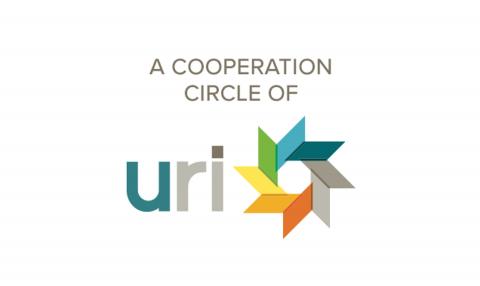The Power of Photographs by P. K. McCary “A picture is worth a thousand words—in every language.” Words are powerful. What we say and how we say it can change the course of history. With that reality, if words can motivate and mobilize, then a photograph could change the world. The idiom a picture is worth a thousand words provides unique opportunities for peacemaking. In the right hands, a camera becomes a tool for inspiration and change. Photographs have influenced history. While it is recognized that the power of a particular photograph may depend on the viewer, it is also known that photographs that have the greatest impact are those that tug on the consciousness of the other. In other words, when a photograph brings about understanding across cultural, racial or even religious biases, it becomes a tool for peacemaking. In the summer of 2010, a young Middle Eastern man and an older African American woman met and got to know one another. After more than 8,000 Skype messages between them in the course of a year, they designed a photographic competition to honor peace work. The call first went out to those who have participated in venues, events, moments of inspiration and times of hope that makes the work of peacemaking so compelling. But this is not just a photograph competition for peacemakers, but those who would become peacemakers. The competition entitled 1000 Kalema is the Arabic translation for 1000 “words”. The idea behind this competition is that a picture is not only worth a thousand words, but that that these photographs can help bring to the world the narratives of the voiceless as well as help to create opportunities for dialogue and understanding. When a peacemaker is asked why he or she participates in work that includes faiths or cultures not their own, working across the continental divides to bring justice and healing to others, you will find hundreds, perhaps thousands of answers. 1000 Kalema offers those who do “Believe in Peace” a chance to capture those reasons and share it with the world and for those who doubt the same chance. To capture your view of the world through a camera lens provides a chance for discovery. And what will be discovered? With this competition, the philosophy of building cultures of peace, justice and healing become a reality. The pictures can represent the best of our world, insight into the myriad of inspiring ways we can accomplish of goals of peacemaking, interfaith cooperation, and building bridges of harmony. Still, on the other side, photographs can identify areas of conflict and despair with the hope that acts of violence and conflict can be transformed. 1000 Kalema represents what happens when people cross those various barriers of discord and conflict to work together. When two unlikely allies forge a positive intercultural relationship, well, something miraculous happens. Creating 1000 Kalema represents the time spent together getting to know one another and partnering for a unique experience. The competition is designed to be an effective tool to bridge the gap between those who experience conflict and violence and those who desire to work towards resolving conflict and ending violence. Some have asked what constitutes a picture of peacemaking and the answer is that there isn’t one idea or one type of picture. A picture can be about people, places, and cultures. A photograph of a sacred space, a beautiful ceremony and a delightful celebration can provide an image that becomes a moment of inspiration, poignancy, or epiphany. It can change the way others view the world. Photographers are given an opportunity to explore their creativity and to explore those “reasons” of commitment and of understanding the world through the prisms of beliefs, understanding and experience. Are these moments capturable? And once captured, will they—can they—change the world? 1000 Kalema is not just a competition. It is becoming a tool for discovering the ways we can view the world. Moreover, it is a tool that translates into every language or culture. The questions raised when one looks through a lens of camera are many. Will they impact the work of those committed to the journey, the dream and inspire those who have yet to experience a world of inclusiveness? Will they inspire those who sit on the fence, who want to become involved, to build community? The grand idea behind this competition is that images can change the world. At the core of it all, we believe that it will because we know that it has. www.1000kalema.org -- P.K. McCary URI Global Council Secretary Host of The Peace Hour
